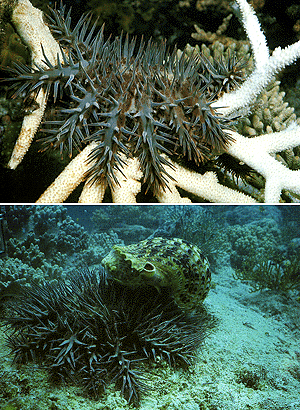ECOLOGY

-
polychaete worms
-
snails
-
clinoid sponges, bivalves and certain
worms that burrow the coral skeleton


